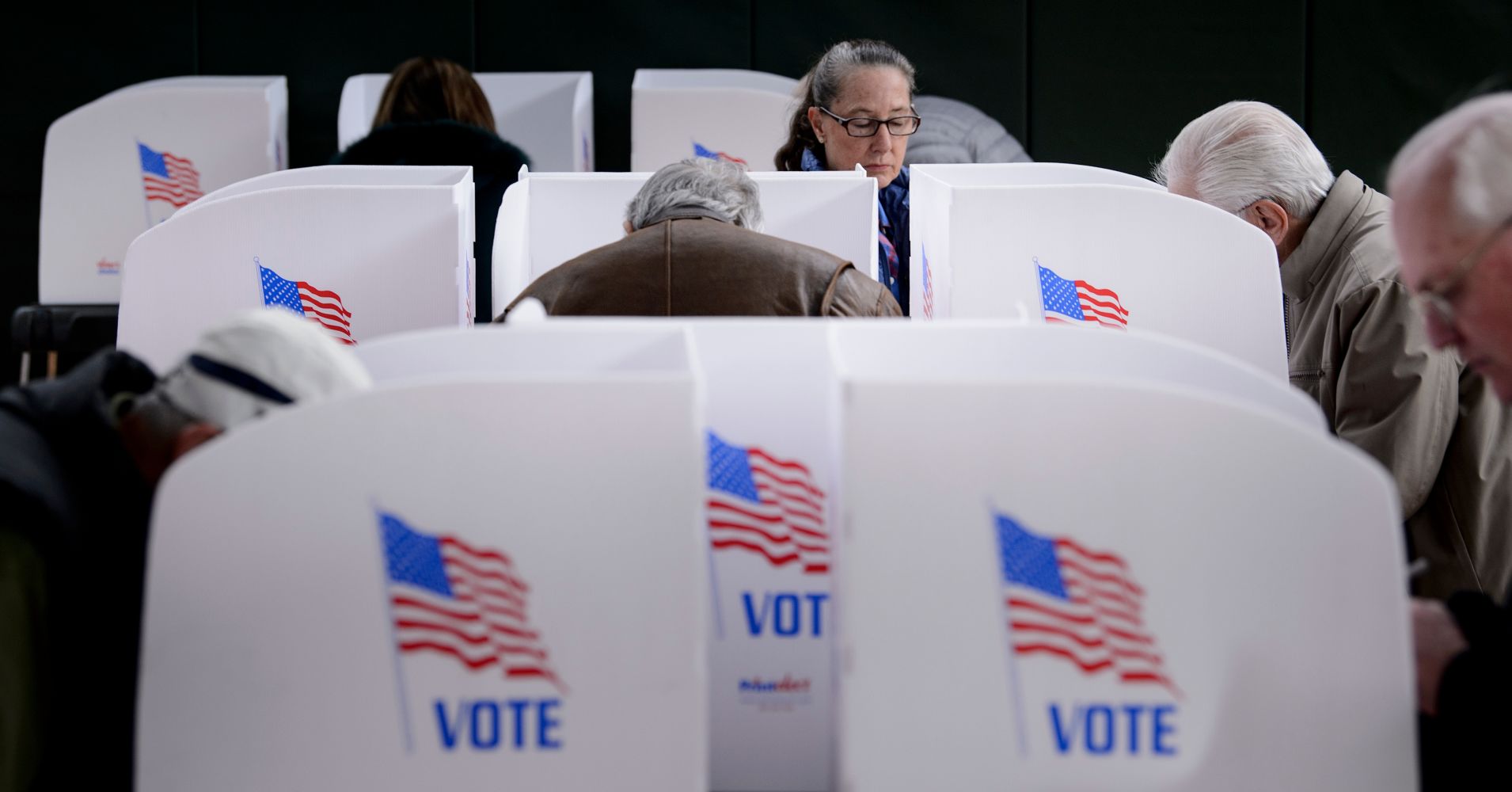Before you get out and vote in Tuesday’s midterm elections, better brush up on the ballot measures. Many states have tax issues up for a vote.
A “notable” number of tax measures are on the ballot this year, and if passed, they could have large fiscal effects, said Vanessa Williamson, a fellow in governance studies at Brookings Institution.
During the last 15 years, voters have approved about half of tax measures on ballots, and that’s a likely outcome this year. Williamson said she expects voter turnout to be higher this year, compared with the average midterm election, which could influence which measures pass.
“I think it’s important more generally to think about what it means for states to turn to their voters to raise taxes, which is normally seen as unpopular,” she said.
Issues like marijuana taxes and progressive taxation (for example, Colorado’s bill to go from a flat income tax to a graduated one) are more dependent on that higher voter turnout, since they are more partisan issues, Williamson said. Soda and tobacco taxes tend to be less divisive, and so, easier to pass.
Here are some of the big tax issues that voters will decide Tuesday, according to the Tax Policy Center, a joint venture of the Urban Institute and Brookings.
Washington: If voters pass Initiative 1631, the state will levy the nation’s first carbon fee on companies that sell or use fossil fuels. The proposed rate of $15 per metric ton of carbon emissions would go into effect in 2020, with $2 annual increases thereafter until the state meets its emissions target.
California: Voters mulling Proposition 6 are deciding whether to repeal a 12 cent per gallon gas tax increase that was approved last year.
Colorado: Voters will weigh in on two initiatives to determine how transportation projects will be funded. Proposition 110 would increase the sales-tax rate from 2.9 percent to 3.52 percent over a 20-year period to help cover the cost, while a vote for Proposition 109 would instead use money from the general fund.
Missouri: Proposition D would increase the state’s per-gallon gas tax over four years, to 27.3 cents from a current 17.3 cents.
Michigan: Proposal 1 would allow legal and taxable marijuana, setting up a 10 percent excise tax on purchases.
North Dakota: Measure 3 would legalize marijuana. It doesn’t set a tax on the drug, but the Tax Policy Center notes that it’s probably coming — legislators are likely to find that revenue potential tough to pass up.
Oregon: Measure 103 prevents the state and local governments from increasing any tax on groceries or putting new such levies in place. (The state doesn’t have a sales tax, so the Tax Policy Center posits this ban is really about nixing the potential for a soda tax.)
Washington: Initiative 1634 is similar to Oregon’s measure, putting the kibosh on any local government efforts to tax groceries. Washington exempts groceries from its sales tax, so again, this is likely more to head off taxes on soda, the Tax Policy Center says.
Montana: A “yes” for I-185 would increase the state tax on cigarettes by $2 per pack, to $3.70. Montana plans to use the revenue to help support its Medicaid expansion.
South Dakota: Measure 25 would increase the state’s cigarette tax by $1 per pack, to $2.53. The revenue would be used to decrease tuition at technical colleges, among other initiatives.
Watch: The midterm ballot initiative that could swing Florida in 2020
Colorado: Amendment 73 would break up its current flat tax of 4.63 percent, adding four new individual income tax brackets. Taxpayers earning less than $150,000 would see no change; at $150,001, a new rate of 5 percent would kick in, with a new top rate of 8.25 percent on taxable income over $500,000. The measure also includes a boost in the corporate income rate (from 4.63 percent to 6 percent), and a decrease in the property taxes imposed by school districts (down from 7.2 percent to 7 percent for residential properties and from 29 percent to 24 percent for nonresidential properties). The estimated $1 billion in additional tax revenue would be used to fund public education.
Maine: Question 1 would levy additional taxes on residents’ income above the Social Security contribution and benefits base ($128,400 in 2018). Employers and employees would share responsibility for the total 3.8 percent payroll tax. Nonwage income above that limit would also be subject to up to an additional 3.8 percent tax. Maine plans to use the tax revenue to create the first universal home health-care program in the U.S., for elderly and disabled residents.
Arizona: Proposition 126 would bar new or higher sales taxes on services. According to the Tax Policy Center, “this initiative would solidify exemptions on mostly high-end services such as gym memberships, car washes, and digital products like Netflix, that are absent from Arizona’s sales tax base but which other states have recently taxed.”
Florida: Amendment 5 would make it tougher for the state to pass any future tax increases, by requiring approval from a two-thirds “legislative supermajority.”
Oregon: Measure 104 asks voters to decide if a supermajority vote is required for bills that involve tax deductions, credits and exemptions. (The state already requires three-fifths of legislators to approve any tax hikes.)
Nevada: Question 2 would exempt feminine hygiene products such as tampons from state and local sales taxes.
North Carolina: Under the Income Tax Amendment, the state’s maximum allowable tax income rate would fall from 10 percent to 7 percent. Currently, North Carolina has a flat tax rate of 5.499 percent.
Watch: How the midterms will affect Trump’s economy


 Signal2forex.com - Best Forex robots and signals
Signal2forex.com - Best Forex robots and signals




